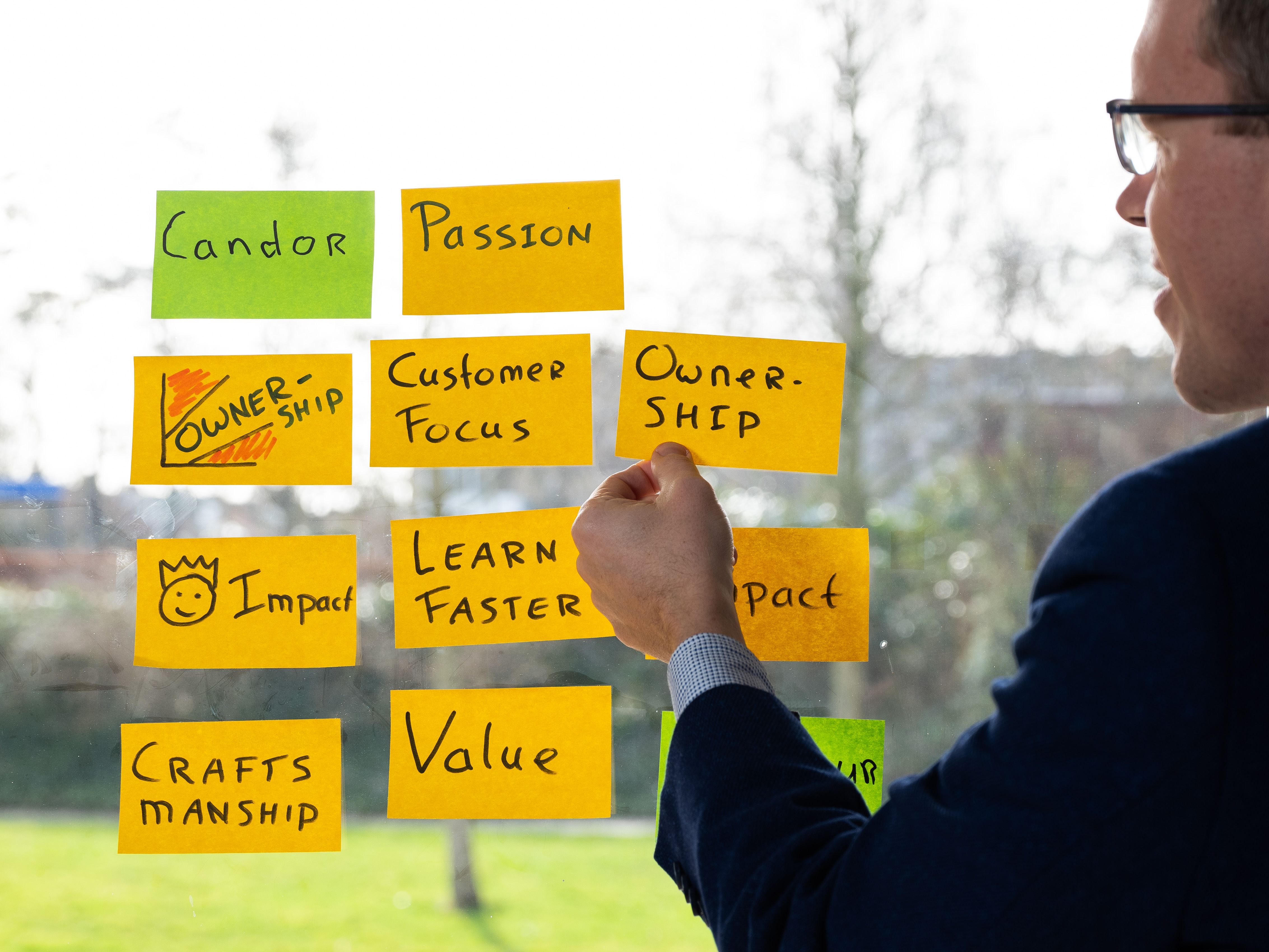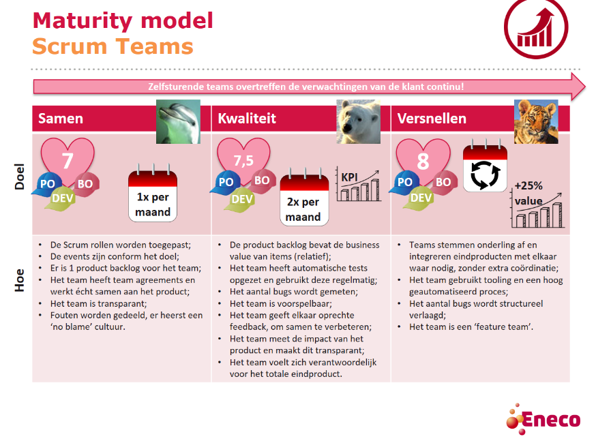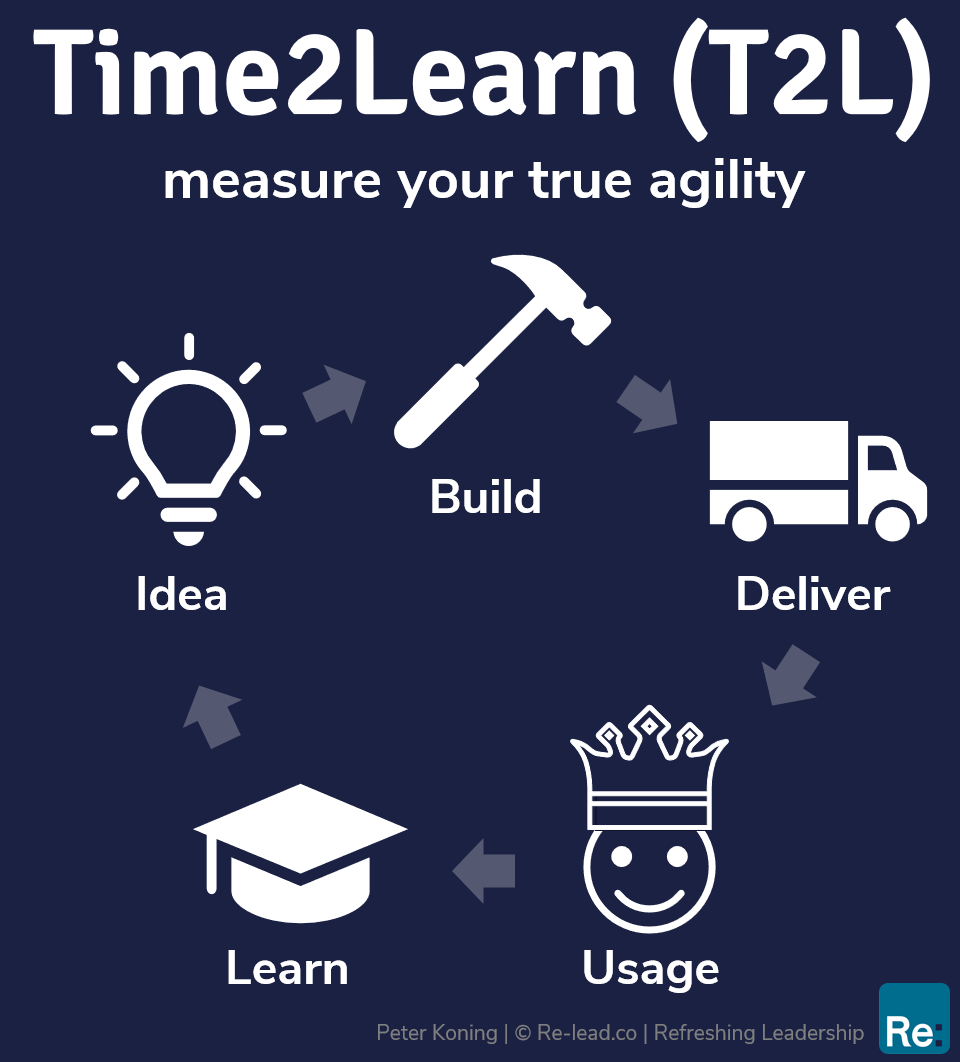
Leiderschapsteam workshops
Praktisch en interactief
Improvements start with new and refreshing leadership. As leaders you want to be a role model to the rest of the organization. You know that you need to do things different, but how?
What is your role towards the self-managing teams? Is it only repeating the vision and give the teams infinite freedom? Of course not, but what to let go and what to keep-on-doing?
These and other questions are covered in our Leadership workshops.
After these workshops, you as leadership team:
- Know which things to focus on the next months,
- What is expected of leaders and managers towards the self-managing (Scrum) teams,
- Have tangible tools and inspiring examples to help you grow,
- Know the pitfalls to avoid and the tips-and-tricks to achieve succes!
Example workshop 1 - Ownership-model
You want your employees and people to be more engaged, pro-active, proud, collaborate and have a can-do mindset. In short: take more ownership.
But how do you unlock this ownership? What should you and (especially) shouldn't do so teams can take ownership?
Do you recognize one of these questions?
You have one or multiple scrum or agile teams. But....- They aren't (enough) collaborating with other teams,
- People are complaining or thinking more in problems than in solutions,
- The team members deliver partially working stuff. It's not fully integrated or not aligned with other changes,
- The team members don't know the vision or aren't inspired by it,
- You score low on employee-engagement scores and you sense low energy in the organization,
- Probably you, as a leader, also don't really know what you should do next.
Is this what you want (more)?
Wouldn't it be great if:- They are pro-active and come with their own initiatives,
- They use tangible metrcis and data to assess their maturity
- Make mistakes, but learn from them
- Celebrate successes
- They collaborate more with other teams,
- The leadership team is working more closely together,
- Resulting in better business results
Example agenda | Leadership team workshop Ownership
Below is just an example, together we'll prepare the workshop and make it more suitable to your situation, challenges and knowledge
Duration: 3-4 hours.- Intro - Why do we have this workshop. What do we want to achieve?
- Essence of agile and/or self-managing teams - Why are more and more organizations choosing for this methodology. What is it? What isn't it?
- Ownership - what is it? Why is it important when you work in complex markets and with highly skilled people and teams?
- Ownership-Model - How do you foster ownership? What to do and not to do? How does an Ownership-model help?
- Break-out - in subgroups, the leaders talk and brainstorm on why certain teams do and others don't take ownership.
- Learnings & Observations - What does the leadership team have to stop and start doing?
- Next steps - let's make it tangible and practical
- Evaluate - how was this workshop? What did you learn?
Do you want to know more how this works in your situation? Let's connect and contact.
Example 2: High Performing Team Workshop
You want to excel and unlock growth. You want (more) continuous improvements, focus on growth and delivering (more) customer value. In short: High Performing Teams. But how?
How do you create superb teams? How do you scale excellence? How do you create a culture of continuous improvements? Have a tangible High Performing Teams workshop with your leadership team and unleash growth!.

Do you have these questions?
You have one or multiple Scrum or agile teams. But....- They are focused on doing, not on achieving,
- Stakeholders are complaining. Their stuff isn't prioritized.
- Product Owners are busy with managing stakeholders, not on delivering more (customer) value,
- We're making the same mistakes, over and over again,
- Probably you, as leaders, also don't really know what you should do next.
How great it would be if ...
- Teams have an improvement backlog,
- We still make mistakes, but learn from them,
- We have tangible metrcis and data to measure growth,
- Teams have also a Maturity forecast
- The leadership team is collaborating on improvements
- Resulting in better business results
Example Agenda | High Performing Teams Workshop
Below is just an example, together we'll prepare the workshop and make it more suitable to your situation, challenges and knowledge.
Duration: 3-4 hours.- Intro - Why do we have this workshop. What do we want to achieve?
- High Performance Mindset - What does it mean to be high performing? How much more effective are these teams?
- Good, Bad, Missing - What do we need to stop doing, start doing and keep on doing to achieve better teams.
- Growth model - Can you measure the difference between an average and high performing team? If so, how?
- Wish or Urgent - Is having more awesome teams nice-to-have? Or is it crucial and urgent?
- Next steps - let's make it tangible and practical.
- Evaluate - What did you learn? How was this workshop?
High Performing Teams aren't 20% more effective. They deliver twice the value in half the time. Leading these awesome teams isn't just work, it's fun and fulfilling!









